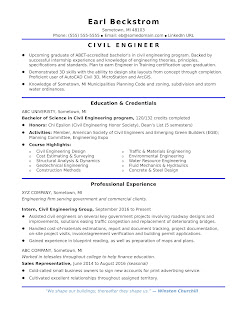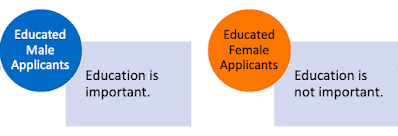by Denise Wilson, June 6, 2022
I read an interesting paper recently (Uhlmann and Cohen, 2005) about how both men and women in three different experiments/studies did not identify men or women by their strengths and weaknesses. That's good news, right! Yay!
I should have stopped reading right then and there.
But I read on. And discovered that in making hiring decisions, people tend to define the credentials for a job by the characteristics that the desired gender just happens to have. In engineering, that means, the desired credentials for an engineering job align with the skills and expertise that male applicants have. And if, as a woman, you don't happen to have those skills, credentials, or expertise, well... you are out of luck (and likely to remain unemployed for longer than your male peers).
The experiment involved 73 undergraduates (both. male and female) who were provided written descriptions of applicants for the job of police chief (a traditionally male dominated position). The written descriptions were of (a) an applicant who was very streetwise (tough, got along with coworkers) but not formally educated and (b) an application who was highly educated but not particularly streetwise.
The good news is that when those in the study evaluated the written descriptions of applicants, they rated streetwise and educated characteristics similarly whether they believed the applicant to be male or female. In other words, they demonstrated no stereotypes regarding which gender has better streetwise or educated characteristics.
While the lack of stereotyping was reassuring, the participants (evaluators) in the study nevertheless discriminated against women in hiring recommendations for the police chief position When given the exact same description of an applicant, evaluators rated the job applicant less positively when the evaluator thought the applicant was a woman than when they thought the applicant was a man.
And, when evaluators thought an educated applicant was a woman, they reported that educated characteristics were less important while when they thought an applicant was a man (with the same written description of experience and characteristics), they viewed educated characteristics as more important. Even when evaluators were assessing stereotypical female characteristics like being family oriented, these characteristics were viewed as more important for police chief when the male applicant possessed them compared to when the male applicant did not.
The bottom line... when men have it, it's viewed as more important to the position and ultimately to the hiring decision. When only women have it, it can be less important to the position and ultimately to the hiring decision. Good news for women who just happen to have the same characteristics as the men in the applicant pool, but where does that leave the rest of the women searching for jobs in a male dominated field like engineering?
While this seems to be dismal news for women seeking work in male-dominated fields, the authors of this research didn't leave us in such a dismal place. In another experiment, they recruited local community members and split them into two groups: (1) those who entered the hiring evaluation process with no formal criteria for evaluating applications; and (2) those who entered the process with established formal criteria in hand. And for the latter group, gender bias and discrimination disappeared.
This type of bias has a name -- Constructed Criteria Bias.
More importantly, it has a solution.
In field which are dominated by a single gender, this kind of bias calls for organizations of all types -- government, academic, and private sector -- to carefully craft hiring criteria and rubrics long before taking a look at any applicants, male, female, or otherwise.







No comments:
Post a Comment